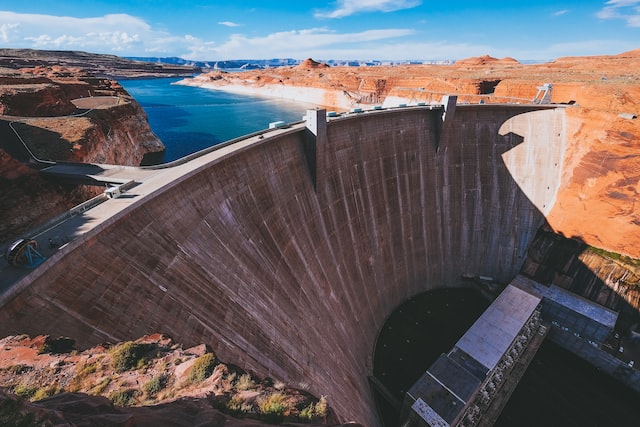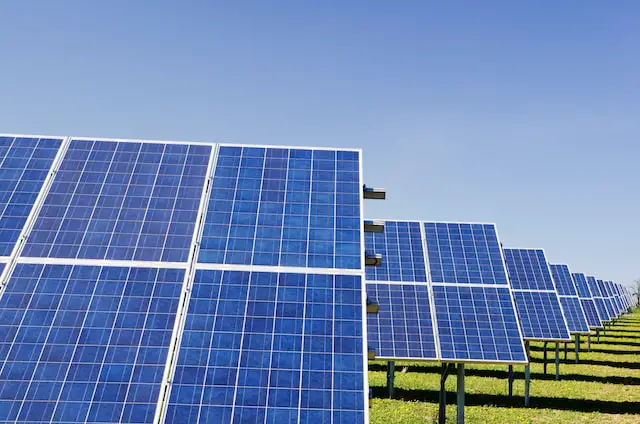
Desalination is a process that is essential for survival in many parts of the world due to the local environment not providing enough fresh water to sustain the required population. You will often hear about negatives related to desalination and its effect on the environment, however, what about the positives? Desalination has a variety of benefits to the environment that deserve to be highlighted and this led to me writing this brief article on the topic.
Desalination relieves stress on natural water sources and helps preserve delicate ecosystems in the process. Large desalination projects can also provide the base demand required for investment in clean energy, improving the regional energy mix and making large cities more sustainable.
Prolongs Natural Water Sources

This is by far the most obvious benefit of desalination, it protects & prolongs declining natural water sources by providing an alternate source of water for farms, industries and cities. Providing an alternative supply to large users of fresh water means that declining existing natural freshwater sources like lakes, rivers, dams and underground aquifers get respite and in some cases help levels begin to rise. An example of desalination helping natural water sources recover is in Western Australia where the Perth Seawater Desalination Plant installed in 2006 and the Southern Seawater Desalination Plant installed in 2011 now account for 50% of Perth’s water supply which was previously drawn from the Mundaring Dam located east of the city. Although the water levels in the Mundaring Dam are still low, the steady decline in water levels coincided with an increasing population and decreasing rainfalls halted, with dam levels being supplemented with desalination in times of low rainfall. It is safe to say that Perth would not survive without desalination and the natural water sources would be depleted beyond recovery, leading to a potential permanent impact on the environment.
If you are wondering whether desalination has the ability to solve the water crisis, you should check out my critique on the topic Can Desalination Solve The Water Crisis: 5 CRITICAL Points.
Protects Fragile Ecosystems

Perhaps a flow-on effect from the initial benefit of prolonging natural water sources, any impact on water levels of natural water sources is minimized, which means the effect on the subsequent aquatic ecosystems is reduced. Aquatic ecosystems that are prone to the effects of altered water levels can refer to both rivers and lakes as well as underground aquifers.
The potential damage to above-ground water sources is perhaps more obvious when lakes are drawn down and shorelines increase exponentially. Local aquatic animals and plants can have their habitats exposed to the atmosphere and terrestrial animals, reliant on proximal water sources can suddenly have to travel hundreds of metres and even kilometres to access lake water that was previously alongside waterfront vegetation. Prolonged instances of low water can lead to permanent habitat loss due to the fragile nature of such environments and the very local distribution of some plants and animals which are affected.
Underground water sources are perhaps less obvious, however, large trees have root systems that penetrate down into the water table to source reliable water year-round, as these underground aquifers are depleted it can lead to these old trees being unable to access water and dying. These large trees are often centrepieces of the ecosystems they inhabit on land, providing shade and shelter for smaller plants and animals. When these trees die out, the whole ecosystem slowly dies out and disappears. In areas around the world with abundant rainfall to recharge underground aquifers, the aforementioned problems are less of an issue, with the particular phenomenon exclusively affecting older water sources under arid areas such as the Great Artesian Basin in Australia or the Ogallala Aquifer in Southern USA.
Water produced from desalination provides an alternate source to natural water sources which decreases the demand for these natural water sources and in the process reduces the impact on their surrounding environments.
Encourage Investment In Clean Energy

One easily forgotten benefit of desalination is that it encourages investment in renewable energy. Due to their huge energy demand, future desalination projects cannot simply slot into the existing energy grid, additional investment is required. In this day and age, both politically and even economically, renewable energy makes sense over fossil fuel sources and due to economies of scale, with higher demand for energy in an area, bigger more efficient power stations can be justified.
As a lot of demand for desalination is in sunny arid areas of the world, the environment of future desalination projects disproportionately benefits solar energy. Between solar, wind and even nuclear, desalination can form the large base demand for renewable power that is required to guarantee income and get financing for the investment. Without a significant increase in demand for energy in a local area, renewable energy implementation needs to rely on the phasing out of existing energy infrastructure, something that can take decades and be a politically sensitive topic.
If you are interested in the underlying business model of desalination, I encourage you to read my article on the topic Is Desalination Profitable? The Business Model Explained.
https://www.watercorporation.com.au/Our-water/Desalination/Perth-Seawater-Desalination-Plant
https://www.watercorporation.com.au/Our-water/Desalination/Southern-Seawater-Desalination-Plant
https://www.abc.net.au/news/rural/2018-02-13/seawater-you-are-drinking-it-debate-over-desalination/9422632
https://www.scientificamerican.com/article/the-ogallala-aquifer/

